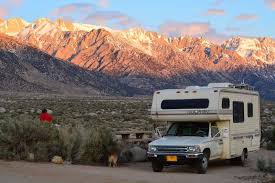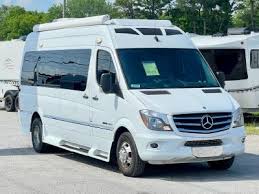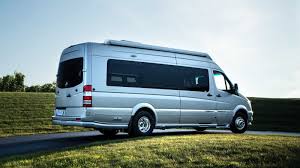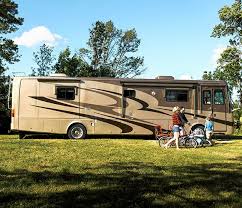The Wonders of RV Travel
RV travel offers a unique and exciting way to explore the world around us. Whether you’re a seasoned traveler or just starting your adventure, hitting the road in an RV opens up a world of possibilities.
Freedom and Flexibility
One of the biggest advantages of RV travel is the freedom it provides. You have the flexibility to go wherever you want, whenever you want. No need to worry about hotel reservations or flight schedules – your home on wheels is always with you.
Connecting with Nature
RV travel allows you to immerse yourself in nature like never before. Wake up to stunning sunrises, camp under starlit skies, and explore remote wilderness areas that are off the beaten path. Nature becomes your backyard, offering endless opportunities for outdoor adventures.
Bonding with Loved Ones
Whether you’re traveling with family or friends, RV trips create lasting memories and strong bonds. From cozy campfire nights to shared meals cooked on the grill, RV travel brings people together in a way that few other experiences can.
Exploring Diverse Destinations
With an RV, the journey is just as important as the destination. Travel at your own pace and discover hidden gems along the way. From national parks and scenic coastlines to charming small towns and bustling cities, there’s no limit to where your RV can take you.
Making New Connections
RV travel is also a great way to meet like-minded travelers and form new friendships. Campgrounds and RV parks are vibrant communities where people share stories, tips, and experiences. You never know who you might meet on the road!
Start Your RV Adventure Today
Whether you’re planning a weekend getaway or a cross-country road trip, RV travel offers endless possibilities for exploration and adventure. Embrace the open road, connect with nature, and create memories that will last a lifetime – all from the comfort of your own mobile home.
Your Ultimate Guide to RV Travel: Costs, Destinations, Packing, and Tips for the Road
- 1. How much does it cost to rent an RV?
- 2. What are the best destinations for RV travel?
- 3. What should I pack for an RV trip?
- 4. Are there RV parks with full hookups along my route?
- 5. How do I find campsites and boondocking spots for my RV?
- 6. What are some tips for first-time RV travelers?
1. How much does it cost to rent an RV?
When it comes to renting an RV, the cost can vary depending on several factors such as the size and type of RV, the rental duration, the time of year, and additional amenities included. Generally, rental prices for RVs can range from a few hundred dollars per week for a basic camper van to several thousand dollars for a luxury motorhome. It’s essential to consider your budget and travel needs when choosing an RV rental to ensure you find the right balance between cost and comfort for your journey.
2. What are the best destinations for RV travel?
When it comes to the best destinations for RV travel, the options are as diverse as the landscapes you can explore. From the majestic national parks of the United States, such as Yellowstone, Grand Canyon, and Yosemite, to the picturesque coastal routes along the Pacific Coast Highway or the Great Ocean Road in Australia, RV travelers have a plethora of breathtaking destinations to choose from. Whether you seek adventure in the great outdoors, cultural immersion in historic cities, or relaxation on serene beaches, RV travel opens up a world of possibilities for unforgettable journeys and experiences.
3. What should I pack for an RV trip?
When preparing for an RV trip, it’s essential to pack strategically to ensure a comfortable and enjoyable journey. Some key items to consider bringing include bedding and linens for a good night’s sleep, cooking essentials such as pots, pans, and utensils for preparing meals on the go, personal hygiene products, clothing suitable for various weather conditions, outdoor gear like chairs and a portable grill for outdoor relaxation, first aid kit for emergencies, entertainment options such as books or games for downtime, and any necessary documents like identification and insurance information. By packing thoughtfully and considering the specific needs of your trip, you can make the most of your RV adventure.
4. Are there RV parks with full hookups along my route?
When planning your RV travel adventure, a common question that arises is, “Are there RV parks with full hookups along my route?” Full hookups typically include connections for water, electricity, and sewer, providing convenience and comfort during your stay. Fortunately, many RV parks across the country offer full hookups, making it easier for travelers to find suitable accommodations along their journey. By researching and mapping out your route in advance, you can identify RV parks that provide the amenities you need for a seamless and enjoyable travel experience.
5. How do I find campsites and boondocking spots for my RV?
Finding campsites and boondocking spots for your RV is a common concern for many travelers. There are several ways to locate these accommodations, depending on your preferences and needs. You can use online resources such as campground directories, RV travel websites, and apps that provide detailed information on campgrounds, amenities, and reviews from fellow RVers. Additionally, joining online forums and social media groups dedicated to RV travel can be a valuable source of recommendations and tips from experienced travelers. For those seeking a more off-the-grid experience, boondocking – camping in remote areas without hookups – offers the opportunity to connect with nature in secluded settings. Researching local regulations and safety considerations is essential when choosing boondocking sites, ensuring a safe and enjoyable experience for your RV adventure.
6. What are some tips for first-time RV travelers?
For first-time RV travelers, a few essential tips can make the journey smoother and more enjoyable. Firstly, take your time to familiarize yourself with the RV’s operation, including how to set up and break down camp. Planning ahead and making reservations for campsites can help avoid last-minute stress. Pack essentials such as tools, emergency supplies, and a first aid kit. Remember to drive cautiously, as RVs require more space and time to maneuver than regular vehicles. Lastly, embrace the spontaneity of the road while also being prepared for unexpected changes in weather or road conditions. With these tips in mind, first-time RV travelers can embark on their adventure with confidence and excitement.




